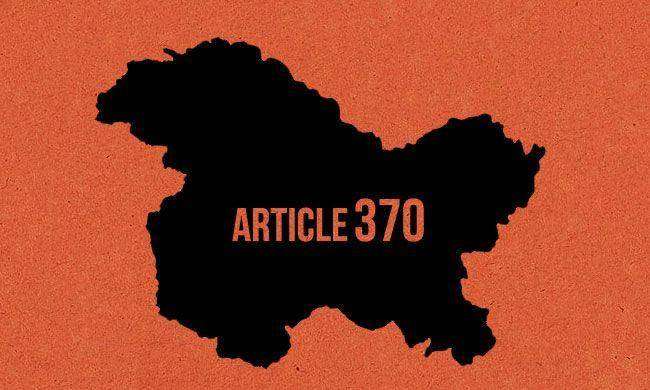A day ahead of the sixth anniversary of abrogation of Articles 370 and 35A, the National Conference general secretary and MLA, Ali Mohammad Sagar, termed August 5, 2019, as a “black day” in the history of Jammu & Kashmir. He described the revocation of Article 370 as a grave act of political backstabbing and a profound humiliation for the people of J&K, stripping them of their constitutional rights and identity.
He condemned the unilateral decision, stating it undermined the democratic fabric and aspirations of the people. During his visits to Khawja Bazaar, Nowhatta, and Khayam areas of his constituency.
Sagar reaffirmed NC’s commitment to restoring the rights snatched from the people. He urged the public to extend unwavering support to the Omar Abdullah-led government in its efforts to uphold constitutional and democratic principles.
Sagar emphasized that the government is working tirelessly to address the grievances of the people and restore their dignity through lawful means. He called for unity in this struggle, assuring that NC remains steadfast in its fight for justice and the reinstatement of J&K’s special status, reflecting the true will of its people.
Congress party has announced to observe August 5, as a ‘black day’ against the downgrading of the historical J&K state into a UT and organise a peaceful sit- in Dharna near the statue of Maharaja Hari Singh at Tawi Bridge, Jammu, to press for early restoration of full statehood to J&K.
Meanwhile in a statement, BJP spokesman Altaf Thakur said that August 5, 2019, will be remembered as a defining moment that ended decades of uncertainty and paved the way for peace, prosperity, and equal rights in the region.
Thakur said that prior to the abrogation, Jammu and Kashmir remained trapped in a vicious cycle of hartals, stone pelting, and terrorism. “Shops remained shut for days, schools were forced to close, and normal life was frequently disrupted due to the fear spread by separatists and terrorist sympathizers. But after August 5, 2019, that chapter has closed for good,” he stated.
Highlighting the major changes post-abrogation, Thakur asserted that incidents of stone pelting have come down to zero and local recruitment of youth into terrorist ranks has almost stopped. “This shift is proof that the youth of Jammu and Kashmir have chosen books over bullets and laptops over stones,” he said.
He added that the decision taken by the Modi government was not just constitutional but transformational. “Articles 370 and 35A had become tools of discrimination. Women who married outside the state lost their rights, Dalits and refugees were denied reservations, and people from other parts of the country could not settle or invest here. The abrogation ended these injustices once and for all,” he said.
Thakur said the last six years have witnessed unprecedented development across all regions of J&K. “Whether it’s the construction of roads in far-flung areas, expansion of health and education infrastructure, return of tourism, or rising investor interest—J&K is on a new path of progress,” he said.
“Today, the fear of shutdowns and terrorist threats has faded. Schools are functioning normally, youth are participating in sports and skill-building, and tourists are returning in record numbers. This peace and stability have opened the doors to a brighter future,” he said.
Responding to political parties calling for the observance of August 5 as ‘Black Day’, Thakur said that such protests are rooted in vote-bank politics. “Where were these leaders when the people suffered? What did they do for employment, education, or security during their rule?” he questioned.
He urged the people of Jammu and Kashmir to stand united in support of the ongoing transformation. “The choice is clear—either go back to the days of fear and division or move forward on the road to development and dignity. The people have already chosen progress,” he added.
Calling the abrogation of Article 370 a “people-centric” move, Thakur said it has empowered panchayats, ended decades of dynastic rule, and brought governance closer to the grassroots. “This is the Naya Jammu and Kashmir that the nation dreamed of—peaceful, progressive, and fully integrated with the rest of India,” he said.
